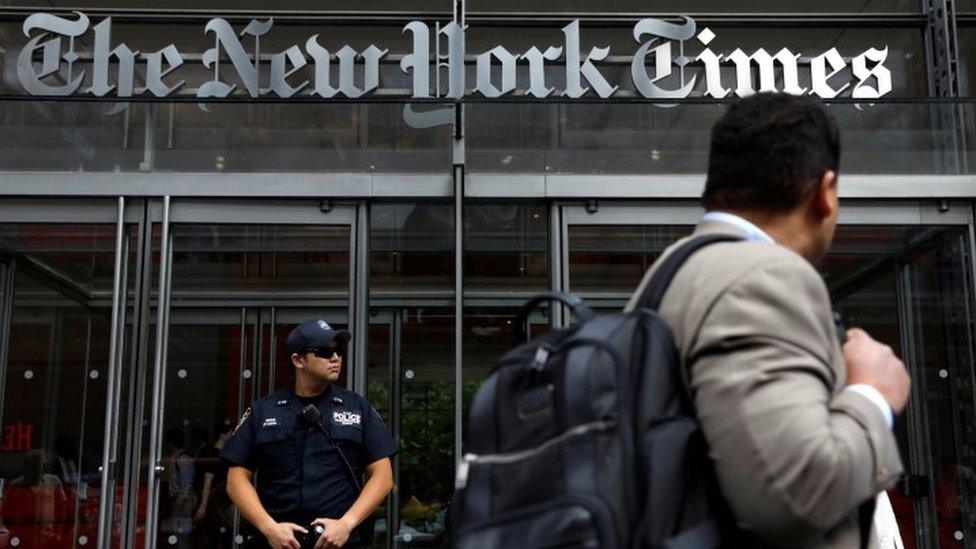Jim Acosta: White House defends revoking CNN man's access
- Published
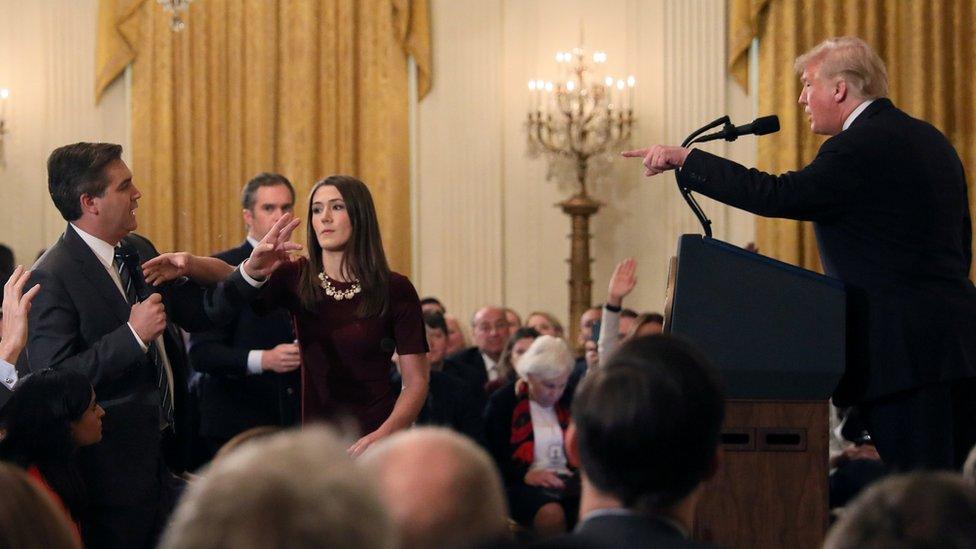
Jim Acosta lost his White House access after a fiery exchange with President Trump
The White House has filed a memo opposing CNN's suit against the Trump administration, saying no journalist has a constitutional right to access.
It states the president and his staff have "absolute discretion" over journalist access and interviews.
Their memo comes on the same day numerous other media organisations - including Fox News - announced their support for the broadcaster.
CNN's Jim Acosta lost his access after a fiery exchange with President Trump.
A White House intern tried to take the microphone from Mr Acosta as he tried to ask the president another question.
His pass was revoked shortly afterwards, with press secretary Sarah Sanders claiming it was because the correspondent "put his hands on" the intern.
CNN filed suit against the president and several of his aides. A hearing is scheduled in Washington DC at 15:30 local time (22:30 GMT) on Wednesday.
Trump: "That's enough, put down the mic"
In opposition to CNN's lawsuit, the memo argues: "No journalist has a First Amendment right to enter the White House."
It also says Mr Acosta got notice of the reason for his pass's revocation on the day and afterwards. The reason given for taking away access was "disrupting press proceedings", the memo states.
News of the filing comes on the same day a number of media organisations - including President Trump's stated favourite, Fox News - came out in support of the CNN lawsuit, and said they would file briefs backing the network's case.
Law firm Ballard Spahr released a statement on behalf of about a dozen organisations, including the Associated Press, Bloomberg, Fox, NBC, the New York Times and Politico.
"Our news organisations support the fundamental constitutional right to question this president, or any president," the release reads, saying it is "imperative" that journalists can access the presidents and that journalists are not excluded for "arbitrary reasons".

A united front against the White House
By Anthony Zurcher, BBC senior North America reporter
Critics frequently demand that the White House press corps stick together against what they see as acts of intimidation from the Trump administration.
When it comes to CNN's lawsuit to reinstate reporter Jim Acosta's press credentials, major news organisations - including conservative-leaning Fox News - are doing just that.
This shouldn't come as a big surprise, however. Media outlets jealously guard their prerogatives - and White House access is the lifeblood of their business.
CNN and others came to Fox News's defence in 2009, when the Obama administration froze the cable network out of interviews with key officials.
They also supported Fox when one of its reporters, James Rosen, was named as a criminal co-conspirator in a 2013 Obama justice department leak investigation.
It appears that CNN may also have legal precedent on its side. In a case dating back to the Lyndon Johnson administration in the 1960s, a federal court ruled that a reporter for the left-wing Nation magazine could not be denied a press credential for "arbitrary or content-based criteria".
Forty years later, a court will be considering constitutionally protected press freedoms. And at least in this case, the major media are putting up a united front against the White House.

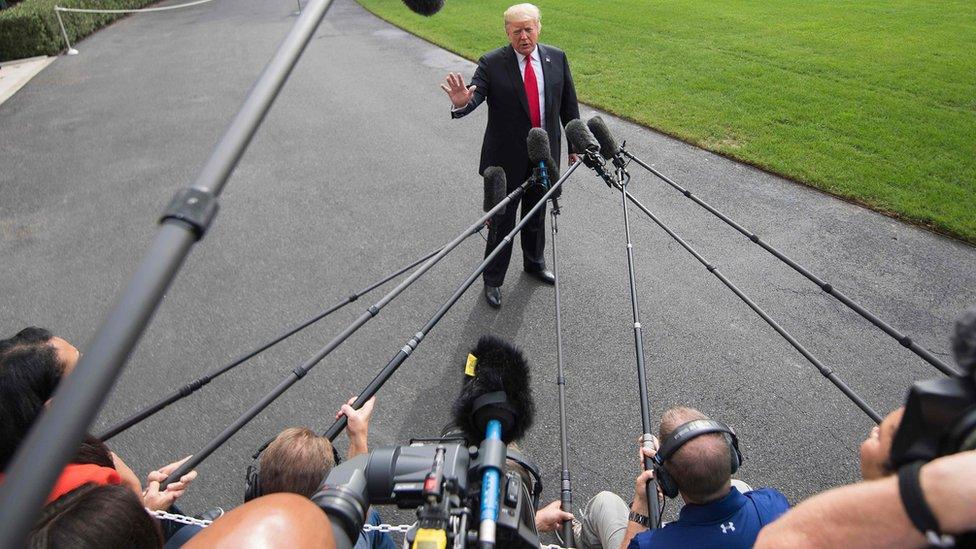
President Trump has frequently clashed with the media throughout his presidency
Fox News separately issued a statement in support of CNN, saying White House passes "should never be weaponised".
"While we don't condone the growing antagonistic tone by both the president and the press at recent media avails, we do support a free press, access and open exchanges for the American people," it said.
Broadcaster CBS News also voiced its intention to file a motion supporting CNN, saying it did not think taking away the press pass was "an appropriate remedy for a disagreement the White House may have with a particular reporter".
Previously, the White House Correspondents' Association - which represents the press corps at the presidential residence - urged the administration to reverse "this weak and misguided action".
"Such interactions [between reporter and president] however uncomfortable they may appear to be, help define the strength of our national institutions," the association said.
Allow X content?
This article contains content provided by X. We ask for your permission before anything is loaded, as they may be using cookies and other technologies. You may want to read X’s cookie policy, external and privacy policy, external before accepting. To view this content choose ‘accept and continue’.

- Published13 November 2018
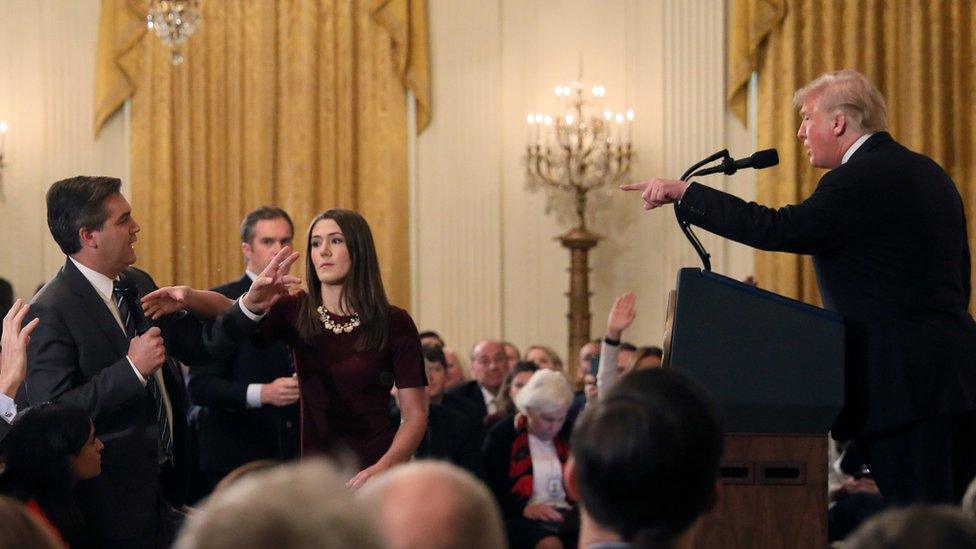
- Published8 November 2018

- Published1 November 2018
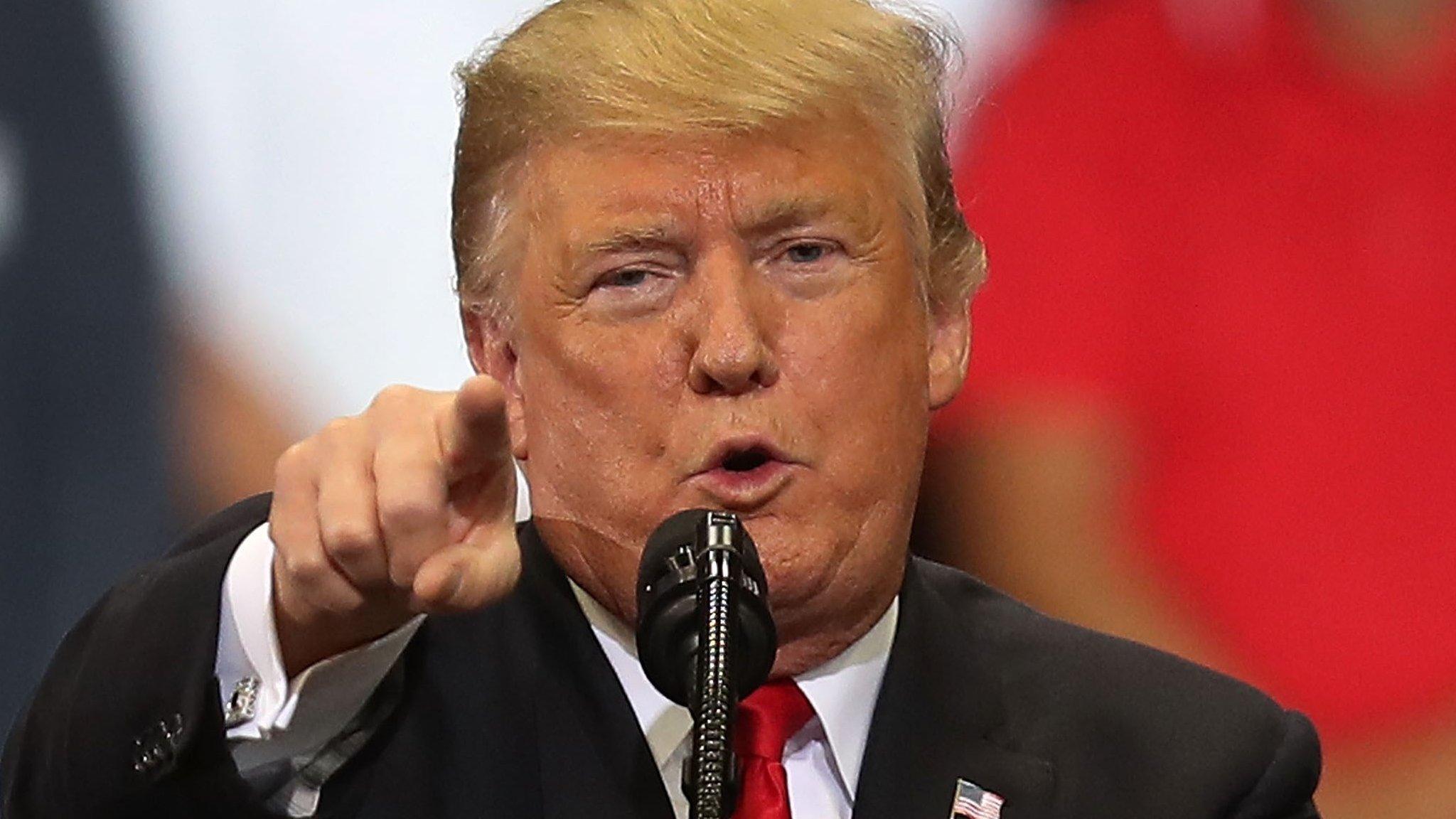
- Published29 July 2018
